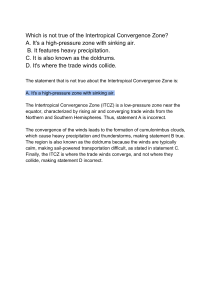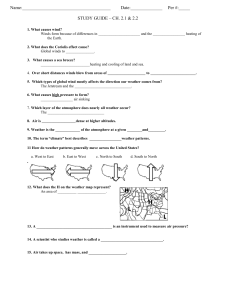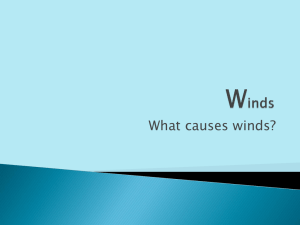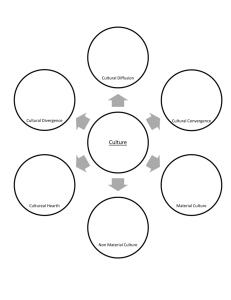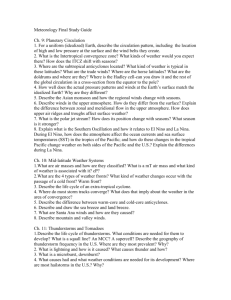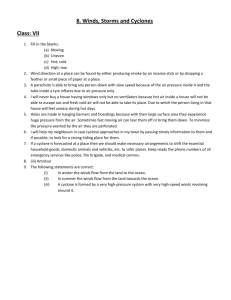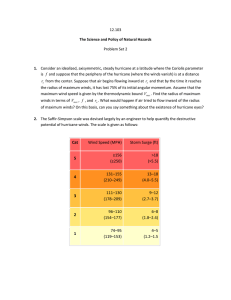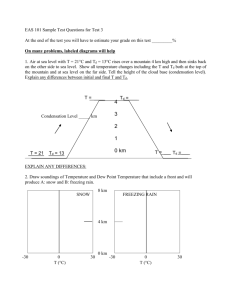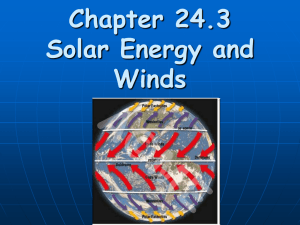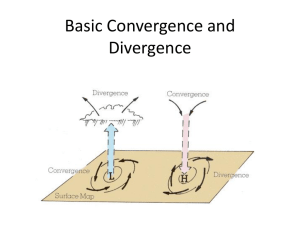Upper-level charts assignment
advertisement
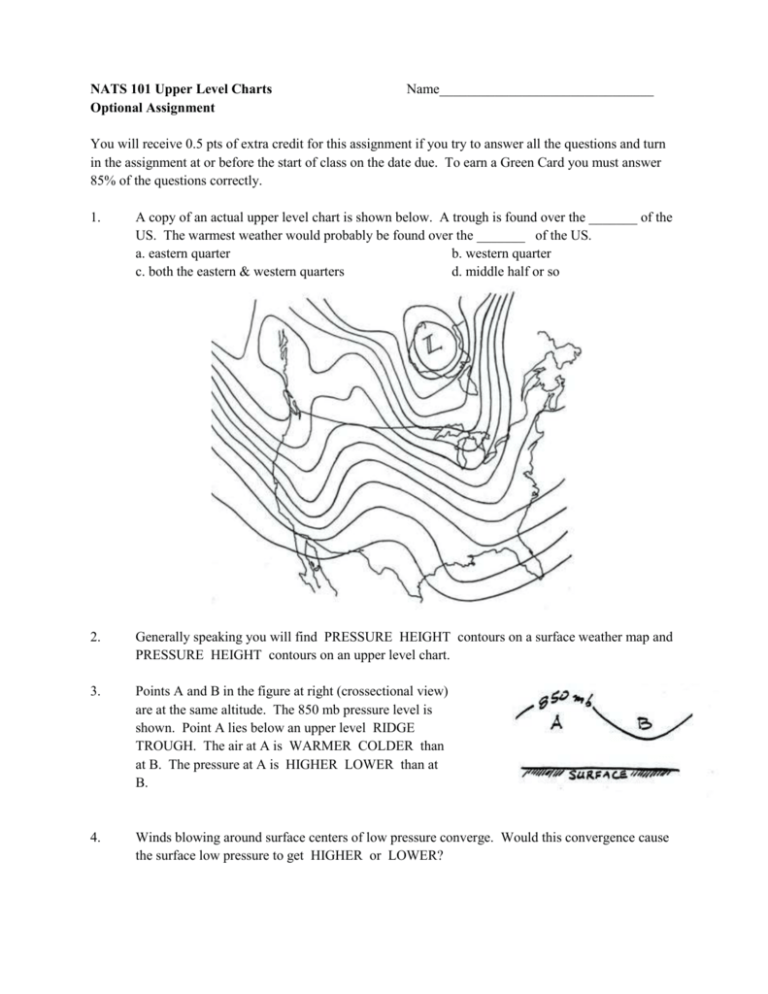
NATS 101 Upper Level Charts Optional Assignment Name_______________________________ You will receive 0.5 pts of extra credit for this assignment if you try to answer all the questions and turn in the assignment at or before the start of class on the date due. To earn a Green Card you must answer 85% of the questions correctly. 1. A copy of an actual upper level chart is shown below. A trough is found over the _______ of the US. The warmest weather would probably be found over the _______ of the US. a. eastern quarter b. western quarter c. both the eastern & western quarters d. middle half or so 2. Generally speaking you will find PRESSURE HEIGHT contours on a surface weather map and PRESSURE HEIGHT contours on an upper level chart. 3. Points A and B in the figure at right (crossectional view) are at the same altitude. The 850 mb pressure level is shown. Point A lies below an upper level RIDGE TROUGH. The air at A is WARMER COLDER than at B. The pressure at A is HIGHER LOWER than at B. 4. Winds blowing around surface centers of low pressure converge. Would this convergence cause the surface low pressure to get HIGHER or LOWER? 5. Which of the four maps below correctly depicts the inclined surface shown at right? 6. Middle latitude storms (aka extratropical cyclones) form around surface centers of low pressure. In order for a surface storm to intensity the low pressure at its center must get even lower. In an intensifying middle latitude storm, would you expect to find that upper level winds are DIVERGING or CONVERGING? 7. Does the figure at right show upper level DIVERGENCE or CONVERGENCE? Based on the relative amounts of air moving into and out of the cylinder at right would you expect the surface center of low pressure to get LOWER, remain the SAME, or get HIGHER 8. Based on the relative amounts of air moving into and out of the cylinder at right would you expect the surface center of high pressure to get LOWER, remain the SAME, or get HIGHER 9. Low pressure and converging winds are found at the bottom center of a hurricane. High pressure and diverging winds are found at the top. Would the surface CONVERGENCE or upper level DIVERGENCE need to be dominant in order for a hurricane to strengthen (see pps 42c&42 d in the photocopied ClassNotes for help with this question if necessary)?
